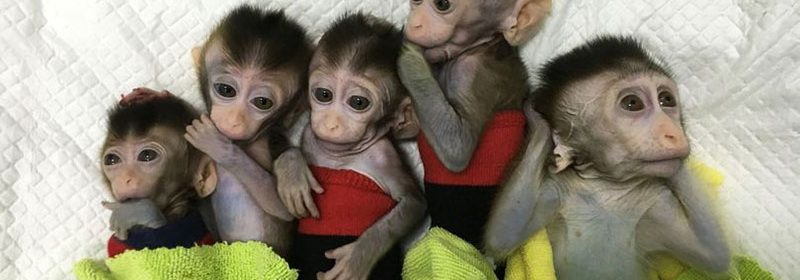MCPH1 Human Brain Gene & Monkeys – China

The researchers inserted the human MCPH1 gene, which is critical for human brain development, into 11 monkey embryos by infecting them with a virus that carried the gene. Six of the monkeys died. The other five, however, showed definite strides in their cognitive ability.
As the study points out, the five surviving monkeys did not show much difference in their general behavior or the size of their brains. However, after performing brain scans and memory tests on the monkeys, improvements in their short-term memory, reaction times and brain development were apparent.
The study claims that the monkeys have “potential to provide important—and potentially unique—insights into basic questions of what actually makes human unique, as well as into disorders and clinically relevant phenotypes, such as neurodegenerative and social behavior disorders that are difficult to study by other means.”
The study has also set off an international debate about genetically modifying animals, and whether experiments like this could lead to even more extreme experimentation. It also raised questions about what would happen to animals who have human-like intelligence, since they have not evolved to survive the way humans do.
“The use of transgenic monkeys to study human genes linked to brain evolution is a very risky road to take,” says James Sikela, a geneticist who has performed similar studies involving primates at the University of Colorado. James Sikela exclaims “It is a classic slippery slope issue and one that we can expect to recur as this type of research is pursued.”
The geneticist who led the study claims he is already working on more in-depth experiments on both human and animal intelligence. Bing Su, a geneticist at the Kunming Institute of Zoology, claims he has been experimenting with monkeys, introducing a DNA variant called SRGAP2C, which is a detrimental link in the development of human intelligence. He said the results of those studies have yet to come.
MCPH1 Gene Study (PDF)
NDS Monkey Human Brain Experiment

 Print
Print